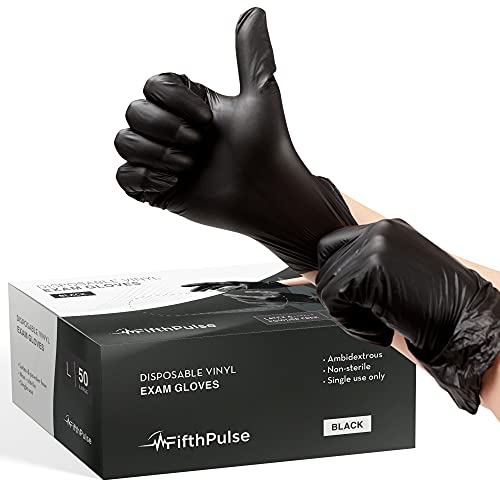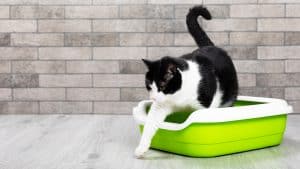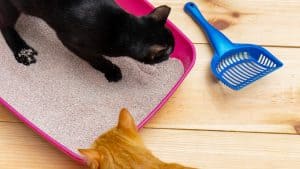Cleaning your cat's litter box can be a bit of a chore, but imagine the panic that ensues when you've just cleaned the litter box with bleach.
Bleach was the cleaning agent you used and now you're questioning if this could harm your beloved pet. Don't worry, you're not alone in this concern.
In this article, we will address what to do if you accidentally clean your litter box with bleach and how to prevent potential issues from arising.
As a responsible pet owner, it's essential to understand the risks associated with using bleach around animals, specifically cats.
Why Bleach Is Dangerous
While bleach can be an effective cleaning agent, it also comes with potential hazards when incorrectly used.
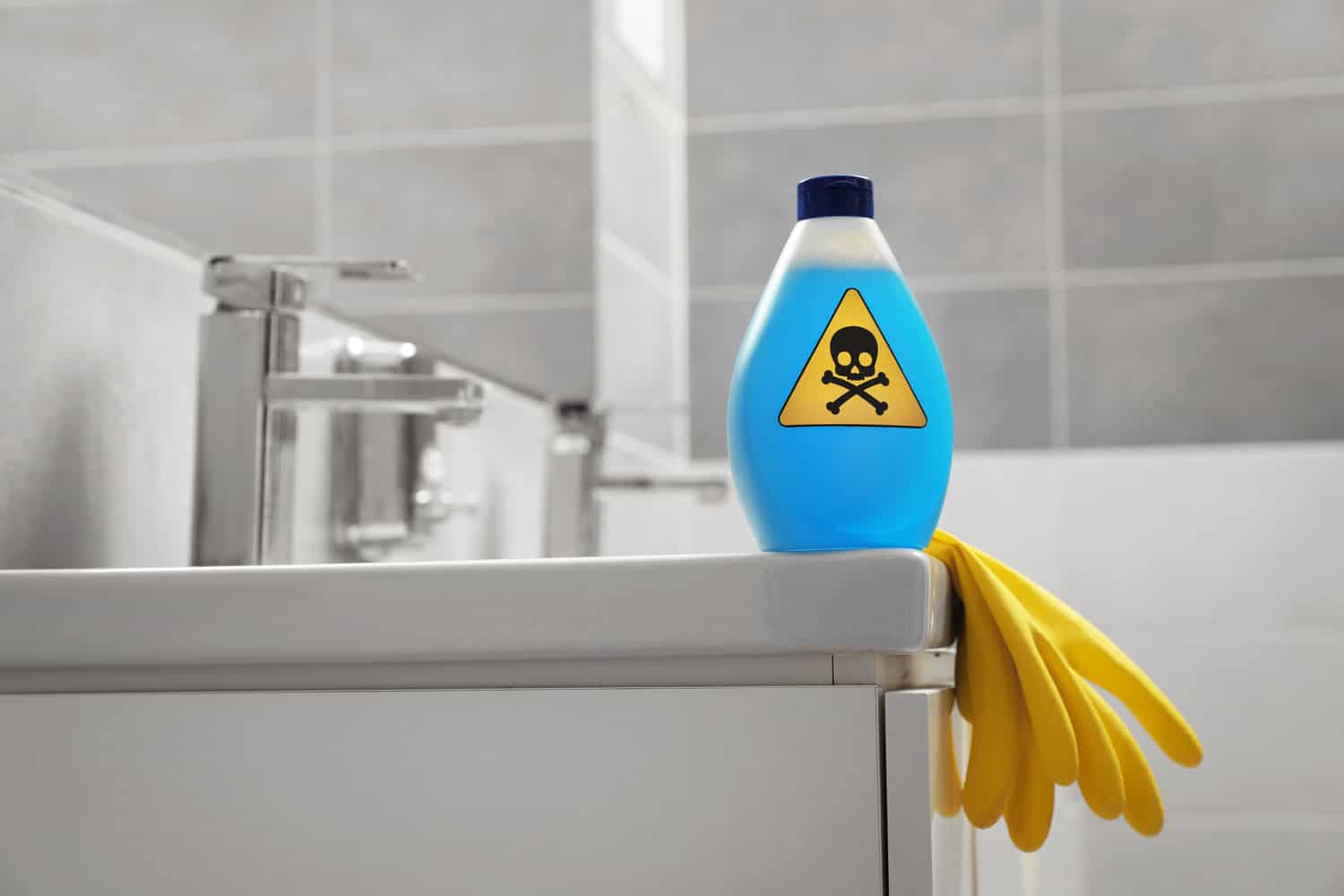
Below are the potential dangers associated with using bleach to clean a litter box and what could happen to both cats and humans.
Potential Hazards For Cats
Reflect on the instance when you cleaned the litter box with bleach for your cat.
Mixing bleach with cat urine can create a dangerous chemical reaction.
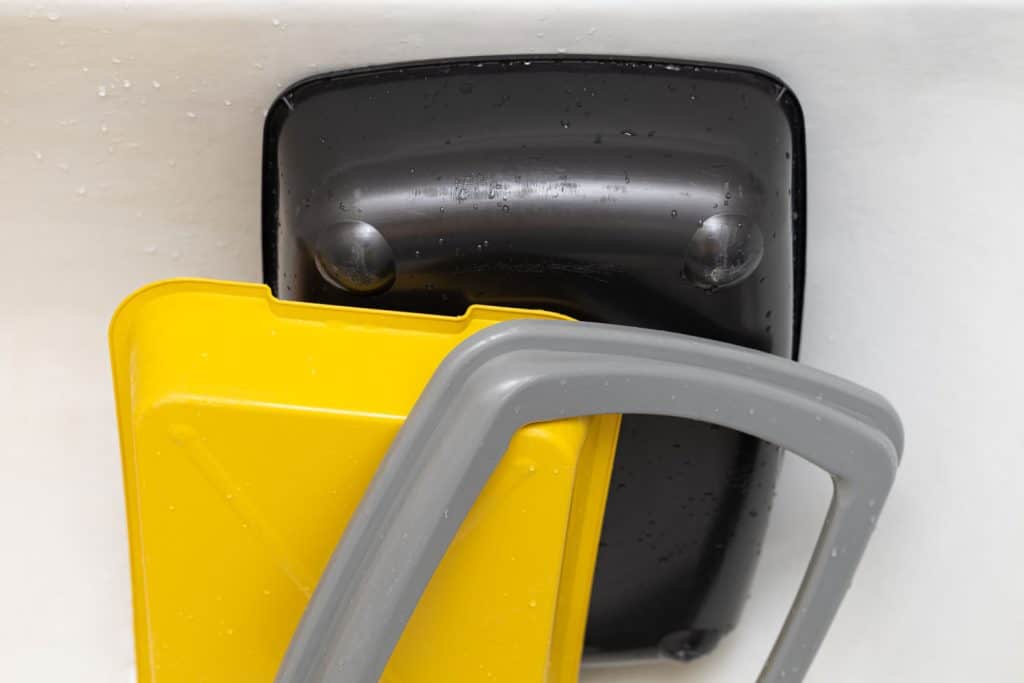
Cat urine contains ammonia, and when you mix bleach with ammonia, you produce chloramine and chlorine gases.
These toxic gases can cause respiratory irritation in cats or even lead to serious health problems.
In addition, bleach residues left in the litter box after cleaning could harm your cat if it steps on the wet surface or ingests it while grooming.
Some symptoms of bleach exposure in cats include drooling, vomiting, excessive grooming, and signs of distress.
Consulting Your Veterinarian
If you suspect your cat has been exposed to bleach, it's essential to consult your veterinarian promptly.
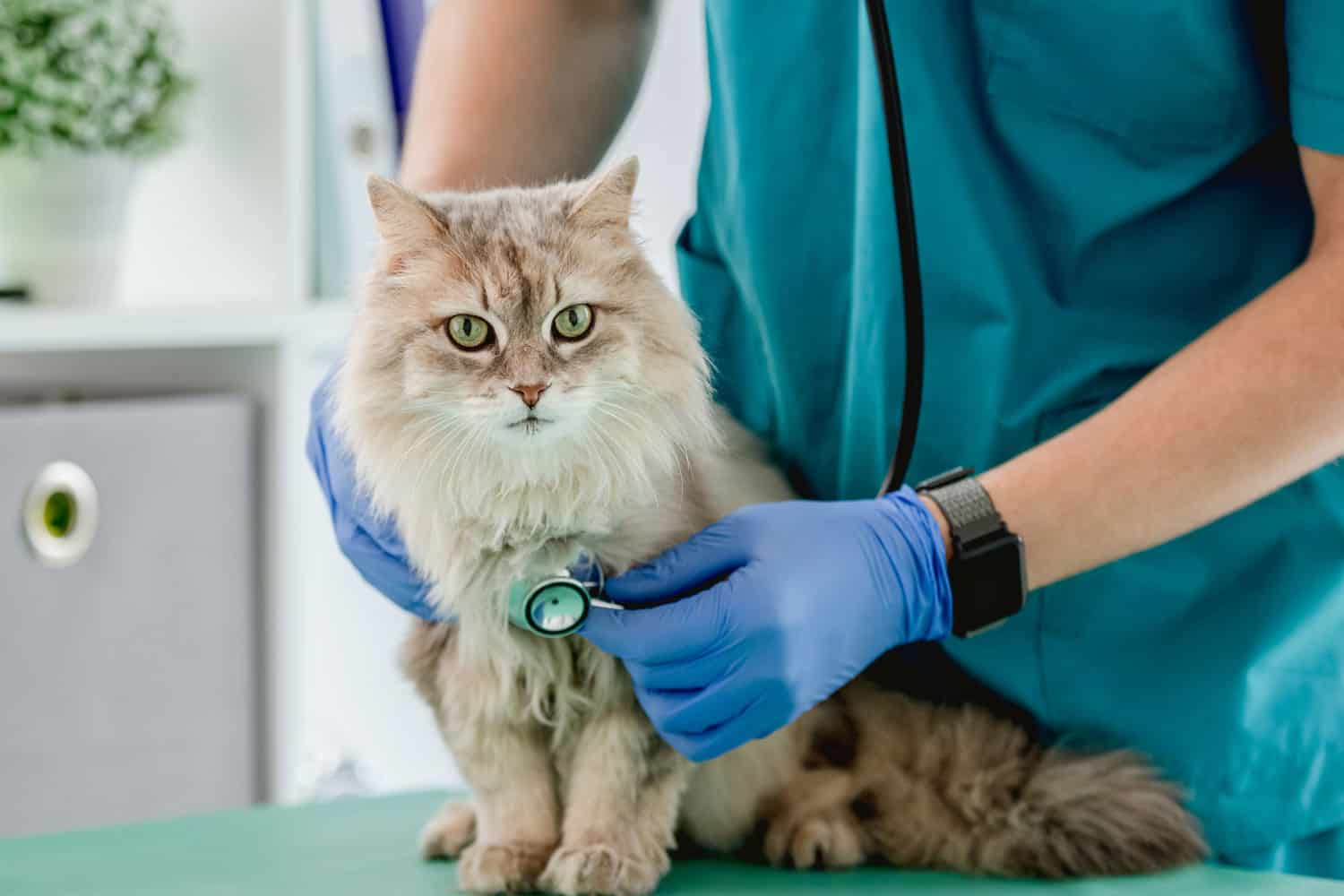
They can provide valuable advice and help determine if any medical intervention is necessary.
Remember, it's crucial to act quickly if you notice any symptoms or signs of toxic exposure in your cat.
With the right care and swift actions, you can ensure your furry friend stays healthy and safe.
Risks For Humans
As a pet owner, you should also be aware of the risks bleach can pose for you.
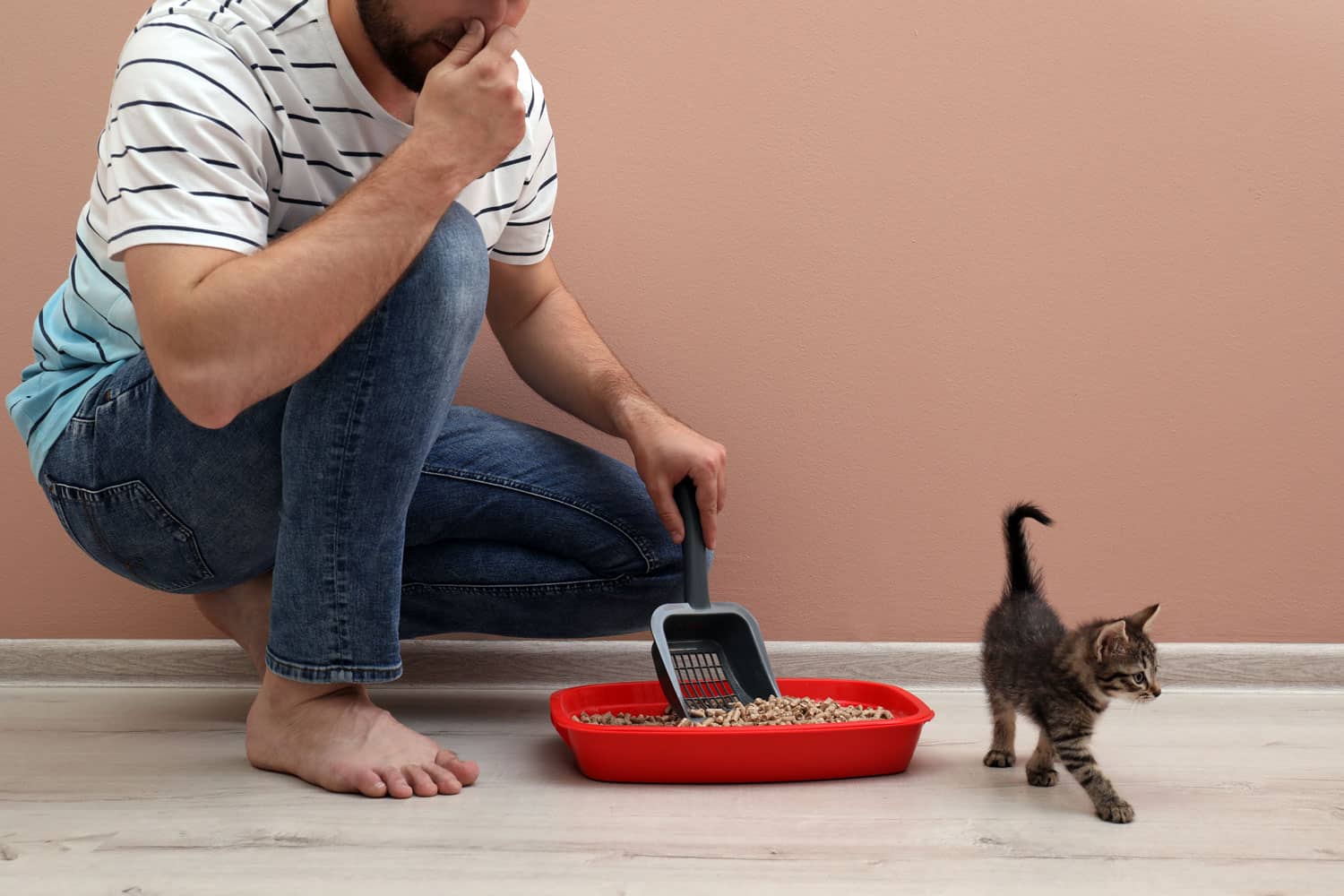
The toxic gases produced when bleach and ammonia mix can cause irritation to your eyes, nose, and throat, as well as difficulty breathing or a burning sensation in your lungs.
In severe cases, exposure to these gases can lead to pneumonia, lung damage, or death.
Immediate Actions To Take
It's critical to stay calm and composed when you realize you've made a cleaning error.
The best course of action is to follow a step-by-step plan to mitigate the damage and ensure safety for both you and your pet.
Keep in mind that the situation requires urgency, but it's equally important to take cautious steps to prevent further harm.
Stop The Chemical Reaction
If you accidentally cleaned the litter box with bleach, your first priority is to stop the chemical reaction.
Bleach can react with ammonia in cat urine, producing harmful chlorine gas.
Immediately remove any bleach-soaked litter or material, and if you can, try to neutralize the reaction with water or equal parts water and vinegar.
Be careful and make sure you're wearing gloves to protect your skin from the mixture.
Click here to see this box of gloves on Amazon.
Cleaning Up After The Accident
Cleaning up after accidentally using bleach on your cat's litter box is necessary. Follow the steps below to ensure your safety and your cat's well-being.
Preparation for Cleanup
First things first, put on a pair of disposable gloves. This will protect your hands from the bleach while you clean up.
Next, grab some paper towels and, if possible, a cleaning rag or sponge. You'll need these to help scrub away the bleach from the litter box.
Click here to see this paper towel on Amazon.
Ventilation and Disinfectant Preparation
Before you start cleaning, make sure to open windows and doors to ensure proper ventilation. This will help dissipate any lingering fumes from the bleach.
Now, prepare a bucket of hot water and a mild, odor-free disinfectant. This will be used to clean and rinse the litter box thoroughly.
Click here to see this disinfectant on Amazon.
Bleach Removal and Initial Cleaning
Begin by scooping out as much of the soiled litter as possible and discarding it.
After that, use paper towels or a cleaning rag to wipe away any remaining bleach residue.
Click here to see this box of cleaning rags on Amazon.
Be sure to focus on the corners and edges of the litter box to remove all traces of bleach. You may also use a scrub brush if needed.
Click here to see this scrub brush on Amazon.
Deep Cleaning and Rinsing
Once you've removed all visible traces of bleach, soak your sponge or rag in the bucket of hot water and disinfectant.
Click here to see this sponge on Amazon.
Scrub the entire litter box, making sure to cover all surfaces in the cleaning solution.
Rinse the litter box thoroughly with hot water to remove any detergent or disinfectant residue.
Repeat Cleaning and Drying
If you notice a strong bleach smell, it is essential to clean the litter box again.
Repeat the process as needed until the scent is gone. Afterward, let the litter box air dry completely before adding fresh litter.
Click here to see this cat litter on Amazon.
What To Use Instead Of Bleach
Let's talk about some safer alternatives you can use next time. These options are effective and won't pose a risk to your furry friend.
Using Vinegar as a Natural Cleaner
One great alternative is vinegar. This natural cleaner has antibacterial and deodorizing properties, making it perfect for freshening up your pet's litter box.
Click here to see this vinegar on Amazon.
Simply mix equal parts water and white vinegar in a spray bottle, and you're all set! Not only is vinegar cost-effective, but it's also gentle on the environment.
Harnessing the Power of Baking Soda
Baking soda is another fantastic option for keeping the litter box smelling fresh.
Click here to see this baking soda on Amazon.
Just sprinkle a layer at the bottom of the box before adding your usual unscented or scented litter.
Baking soda is non-toxic, so it won't harm your cat, but it will help to neutralize unpleasant odors.
Choosing the Right Litter
Speaking of litter, choosing the right type is crucial. We recommend unscented litter as some cats might be sensitive to the strong smells of scented litter.
Click here to see this unscented litter on Amazon.
Trying different brands can help you find the perfect fit for both you and your cat.
Disinfecting with Hydrogen Peroxide
When it comes to disinfecting the litter box, hydrogen peroxide is a safer choice.
Click here to see this hydrogen peroxide on Amazon.
This mild germicidal agent can be used to quickly eliminate bacteria without releasing harmful fumes.
Just mix one-part hydrogen peroxide with two parts water to create a cleaning solution, and you're good to go!
Mitigating Bleach Accidents: Wrap-up
In conclusion, if you've accidentally cleaned the litter box with bleach, immediate actions are essential.
Ventilate the area, remove any bleach-soaked litter, and thoroughly clean the box to ensure safety for both you and your pet.
Going forward, consider safer alternatives like vinegar, baking soda, unscented litter, or hydrogen peroxide for cleaning purposes.
Remember, we all make mistakes. What matters is being prepared to handle them swiftly and safely for the well-being of your pet.
Check out these helpful cleaning tips below that you might find useful.

